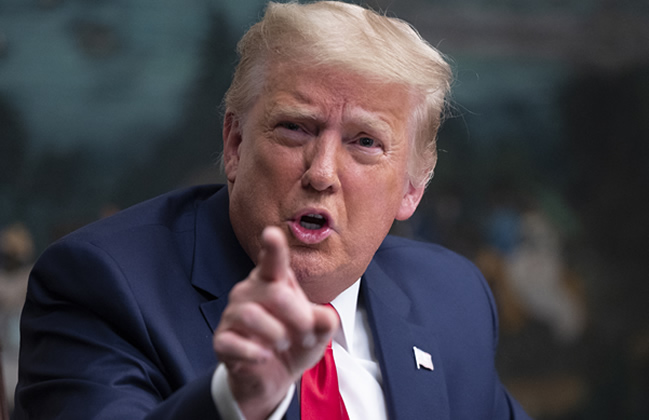
Here is what we know about the charges facing the 76-year-old Trump, the frontrunner for the 2024 Republican presidential nomination, and what happens next:
The charges
The legally and politically explosive case stems from Trump’s retention of classified documents after he left the White House in January 2021.
Hundreds of documents were recovered by the FBI in a raid on Trump’s Mar-a-Lago home in Florida after he failed to comply with a subpoena to hand them over.
The twice-impeached Trump was indicted by a grand jury in Florida following an investigation by special counsel Jack Smith.
The indictment has not been unsealed yet — Trump is to appear in a Miami court on Tuesday — but according to one of his lawyers, Trump faces seven charges.
Jim Trusty, in an interview with the Cable News Network, said that while Trump is not accused of spying, some of the charges involve alleged violations of the Espionage Act.
These include unlawful retention of “national defense information” and concealing records with the intent to obstruct or impede a federal investigation.
Other charges include conspiracy, making false statements to the Federal Bureau of Investigation and witness tampering, Trusty said without providing further details.
The New York Times says Trump may also be charged with mishandling official documents and contempt of court for failing to heed the subpoena to hand over the records to the National Archives.
A conviction for retaining classified documents carries a maximum penalty of up to 10 years in prison while obstruction is punishable by up to 20 years in jail.
Conspiracy and making false statements each carry sentences of up to five years while mishandling official documents is punishable by up to three years in prison and contempt of court by six months.
What happens next
Trump is to appear in federal court in Miami at 3:00 pm (1900 GMT) on Tuesday when the indictment will be unsealed unless it is released earlier.
Trusty, Trump’s lawyer, said the logistics of the former president’s appearance in court were being worked out with the US Marshals Service and the Secret Service to “make this as smooth as possible.”
“He’s going to show up,” Trusty said. “He knows he’s innocent. He knows this is garbage.”
Trump is likely to enter a plea of not guilty at Tuesday’s hearing before a federal judge.
The judge would then come up with a schedule for pretrial hearings and the process known as discovery, in which prosecutors turn over evidence to the defense.
The discovery process could be particularly complicated in the case, legal analysts said, because it involves documents that allegedly involve some of the country’s most tightly held secrets.
The New York Times and Washington Post report that the case will initially be handled by Aileen Cannon, 42, a Trump-appointed judge who made rulings favorable to the former president during a court review of documents seized in the FBI raid on Mar-a-Lago.
An actual trial is not expected to begin for several months and there is nothing to prevent Trump from pursuing a second term in the White House while under indictment.
Trump’s other legal woes
The documents case is not the only legal challenge facing Trump.
The real estate tycoon was indicted in New York in March on charges of falsifying business records related to hush money payments to a former porn star.
Smith, the special counsel, is also looking at whether Trump should face charges over the January 2021 assault on the US Capitol by his supporters.
Prosecutors in Georgia are also investigating whether Trump illegally attempted to overturn the 2020 presidential election outcome in the southern state.
AFP





